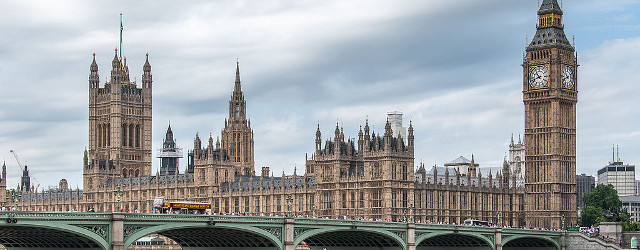In the age of the Twittersphere it is easier than ever for political pundits to get carried away with the brouhaha of a good session in the Commons, especially when the chancellor George Osborne is delivering his final budget before one of the most precarious elections in living memory.
This is, of course, the kind of event that many of the public loath, seeing it as a charade in which two gangs of public schoolboys (and girls) sneer and holler as one of their number attempts to make a speech about some subject.
For those who like their politics pugilistic the sparring between Osborne and leader of the opposition Ed Miliband will no doubt have entertained. But the temptation to linger on the exact performance of both characters ignores the fact that it is not the acting they will be graded on, but rather the story they convey.
From the chancellor’s view this was an attempt to make light of what has been a difficult recovery – spurred on or delayed by his austerity packages over the last parliament depending on your political opinions. In short, the growth of GDP (gross domestic product) has been good, employment has risen (if not the most secure kind, as Miliband pointed out) and some inroads have been made into cutting back the deficit, and perhaps one day the debt.
Added to this was the obligatory distribution of goodies that included a modest increase in the personal allowance (the bit of your salary you are not taxed on) to £11,000, and a rise in the threshold on the 40 percent income tax band to £43,300, both to be put in place by 2017-18. These will also rise to £12,500 and £50,000 respectively at an undisclosed date.
There was also an intriguing proposal for a new type of ISA (individual savings account) directed towards first-time house-buyers, more mutterings about the so-called “Google Tax” to address the naughty habits of multinationals, a support package for North Sea oil worth £1.3bn and other plans for investment in Osborne’s much vaunted (and derided) “Northern Powerhouse”.
Most surprisingly the chancellor promised not another five years of austerity should a Tory-led government be in charge after May, but a mere four. As he put it: “public spending will grow in line with the growth of the economy”. His claim is that this would bring state spending as a share of the national income in line with the equivalent British figures from 2000, some distance from the comparisons to the 1930s his Autumn Statement invited.
But despite that twist, and various attempts to rebalance the economy away from the South East, the direction of travel for Osborne appears to be much unchanged: a push further into the Thatcherite notion of personal responsibility. Miliband declare it “a budget people won’t believe from a government that’s not on their side”, pointing out the lack of comment around the NHS as proof of the old Tory duplicity over public services and contempt for the poor.
Which of these views the public find most appealing will only show in the coming weeks. But at least for now the dying days of the parliament appear much like the rest of David Cameron’s ministry: a contest between blue and red in who can fail the least effectively.
Image – Daniel Bron
